
Opatija: The Pearl of the Adriatic
Nestled along the stunning Adriatic coast, Opatija is a gem in Croatia's crown. Known for its charming elegance and rich history, this coastal town offers a unique blend of natural beauty and architectural wonders. With its mild climate and lush greenery, Opatija has been a popular resort destination since the 19th century, attracting visitors from all over the world. Take a stroll down the Lungomare, a scenic 12-kilometer promenade that hugs the coastline, offering breathtaking views of the sea and nearby islands. The town is dotted with grand villas, luxury hotels, and well-manicured parks, reflecting its glorious past as a favorite retreat for the Austrian elite. Don't miss the iconic statue of the Maiden with the Seagull, a beloved symbol of Opatija, located along this picturesque walkway. Opatija is also a haven for food lovers, boasting a variety of restaurants that serve up delicious local cuisine. Indulge in fresh seafood, truffles, and local wines while enjoying the serene ambiance of the town. The town's botanical gardens, historic churches, and cultural events provide plenty of activities, ensuring that every visitor finds something to enjoy. Whether you're looking for relaxation or adventure, Opatija promises an unforgettable experience.
Local tips in Opatija
- Visit in the spring or fall to avoid the peak tourist season and enjoy pleasant weather.
- Wear comfortable shoes for walking along the Lungomare promenade.
- Book a table in advance at popular restaurants, especially during weekends.
- Explore nearby islands with a day trip by boat for a different perspective of the coastline.
- Check out the local markets for fresh produce and unique souvenirs.
Opatija: The Pearl of the Adriatic
Nestled along the stunning Adriatic coast, Opatija is a gem in Croatia's crown. Known for its charming elegance and rich history, this coastal town offers a unique blend of natural beauty and architectural wonders. With its mild climate and lush greenery, Opatija has been a popular resort destination since the 19th century, attracting visitors from all over the world. Take a stroll down the Lungomare, a scenic 12-kilometer promenade that hugs the coastline, offering breathtaking views of the sea and nearby islands. The town is dotted with grand villas, luxury hotels, and well-manicured parks, reflecting its glorious past as a favorite retreat for the Austrian elite. Don't miss the iconic statue of the Maiden with the Seagull, a beloved symbol of Opatija, located along this picturesque walkway. Opatija is also a haven for food lovers, boasting a variety of restaurants that serve up delicious local cuisine. Indulge in fresh seafood, truffles, and local wines while enjoying the serene ambiance of the town. The town's botanical gardens, historic churches, and cultural events provide plenty of activities, ensuring that every visitor finds something to enjoy. Whether you're looking for relaxation or adventure, Opatija promises an unforgettable experience.
When is the best time to go to Opatija?
Iconic landmarks you can’t miss
Lungomare Guided Tour Opatija
Discover Opatija's Lungomare Guided Tour: A breathtaking coastal journey filled with history, culture, and stunning Adriatic views.
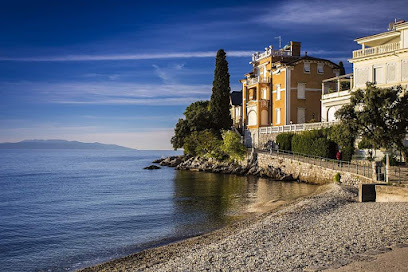
Maiden with the Seagull
Opatija's iconic bronze statue, the Maiden with the Seagull, stands as a symbol of resilience and beauty on the Lungomare promenade.
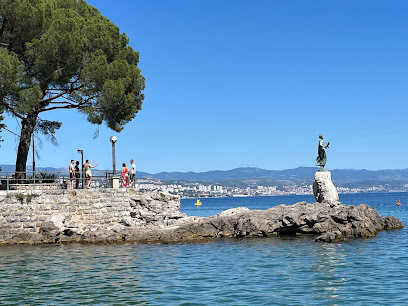
Villa Angiolina u Opatiji Museum
Discover Opatija's rich history and natural beauty at Villa Angiolina and its stunning park, a landmark destination on the Adriatic coast.
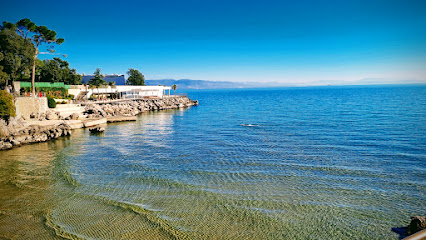
Volosko Beach
Experience the serene beauty of Volosko Beach in Opatija, where crystal-clear waters and stunning views create the perfect Adriatic escape.
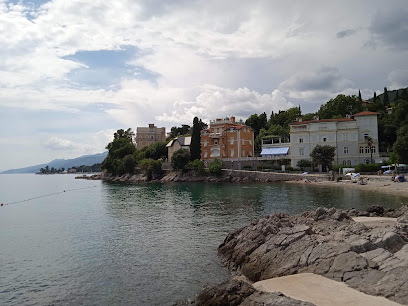
Angiolina Bar
Experience Opatija's vibrant nightlife at Angiolina Bar, offering exquisite cocktails and stunning Adriatic views in a sophisticated setting.
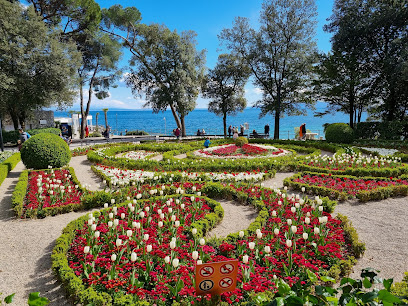
American Gardens
Explore the lush landscapes and serene atmosphere of American Gardens, a delightful park in Opatija, perfect for relaxation and nature lovers.
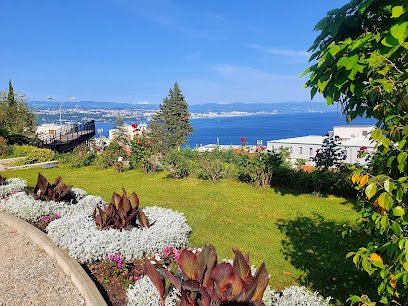
Slatina beach
Experience the vibrant heart of Opatija at Slatina Beach: clear waters, family fun, and seaside charm await on Croatia's stunning coastline.
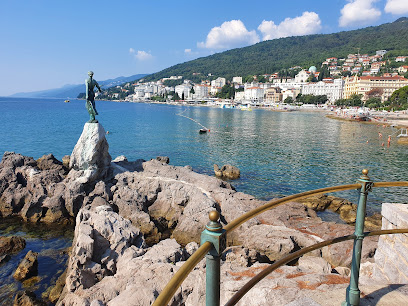
Croatian Museum of Tourism
Explore the fascinating history of tourism in Croatia at the Croatian Museum of Tourism, nestled in the lush surroundings of Opatija's Park Angiolina.
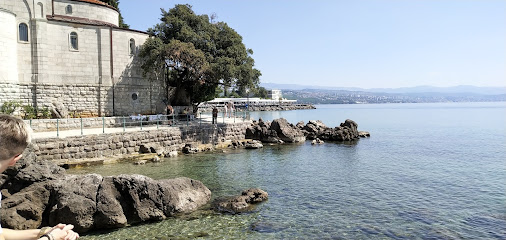
Church of St. Jacob
Discover the beauty and spirituality of the Church of St. Jacob in Opatija, a neo-Gothic masterpiece surrounded by serene parkland.
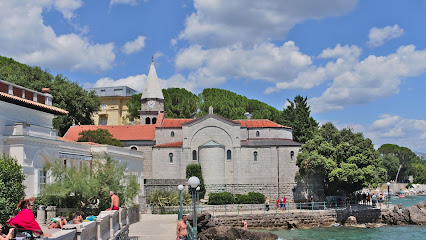
Church of the Annunciation of the Blessed Virgin Mary
Discover Opatija's iconic 'German Church,' a stunning neo-Romanesque landmark with a striking blue dome and serene atmosphere, offering a glimpse into local history.
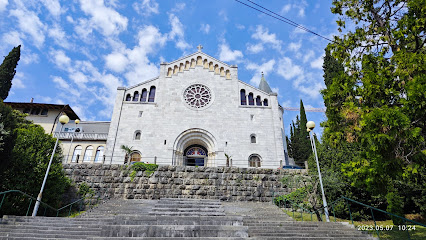
The Wall of Fame
Explore the Wall of Fame in Opatija, where cultural icons come to life amidst breathtaking natural beauty.
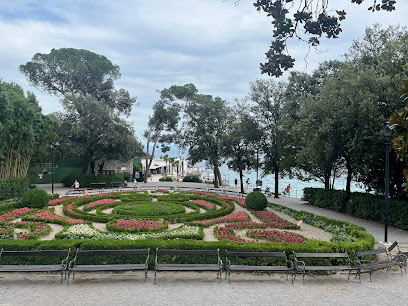
TIC Opatija
Your essential resource for exploring Opatija's attractions, events, and hidden gems. Maps, brochures, and expert advice await!
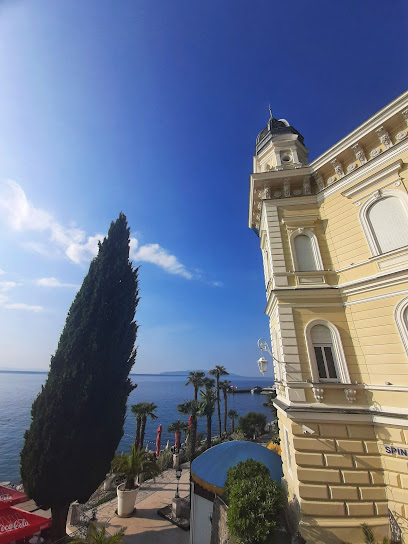
Madonna del Mare Statue
Discover the serene beauty and historical significance of the Madonna del Mare Statue, Opatija's iconic landmark overlooking the Adriatic Sea.
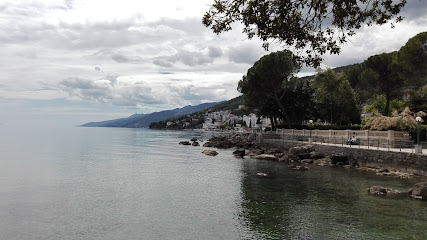
Mornar
Discover the Mornar sculpture in Opatija's Park Svetog Jakova, a tribute to maritime heritage with breathtaking Adriatic views.
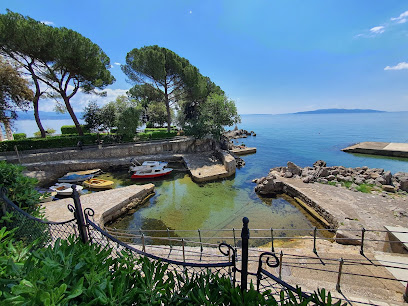
Galerija antikvarijat GAL
Discover antique furniture, paintings, and sculptures with Kvarner Bay views at this unique Volosko art gallery near Opatija.
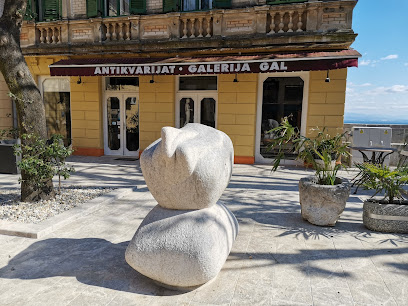
Unmissable attractions to see
Trsat Castle
Discover the historical allure of Trsat Castle, a majestic fortress offering breathtaking views and a glimpse into Rijeka's rich heritage.
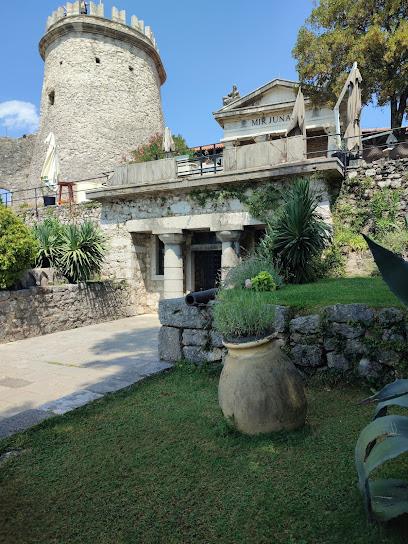
Skocjan Caves
Discover the enchanting Skocjan Caves in Slovenia, a UNESCO World Heritage site featuring stunning geological formations and rich biodiversity.
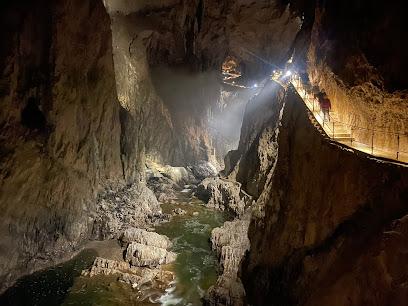
Nature Park Učka
Discover the breathtaking landscapes and rich biodiversity of Nature Park Učka, Croatia's hidden gem for nature lovers and adventurers.
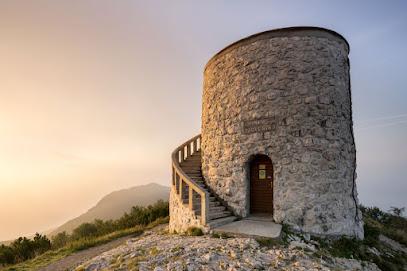
Lungomare Guided Tour Opatija
Explore the Lungomare promenade in Opatija, a stunning coastal walk filled with breathtaking views, history, and local culture.
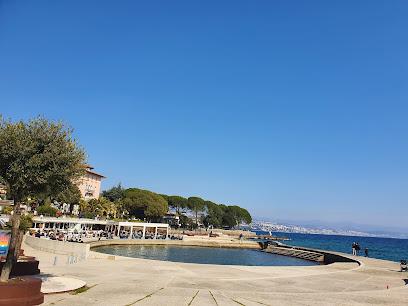
Maiden with the Seagull
Discover the breathtaking Maiden with the Seagull in Opatija, a captivating symbol of love and beauty overlooking the Adriatic Sea.
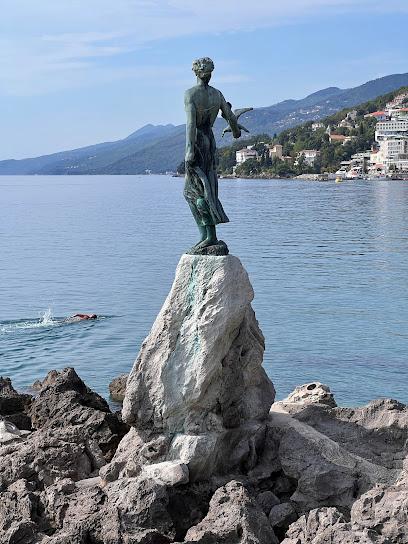
Frankopan Castle
Unveiling the majestic Frankopan Castle in Krk, a historical landmark that showcases the rich heritage and stunning views of the Adriatic.
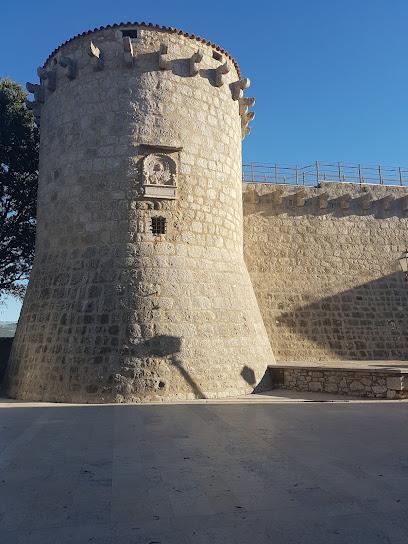
Risnjak National Park
Discover Risnjak National Park: A breathtaking Croatian wilderness filled with diverse flora, fauna, and endless outdoor adventures.
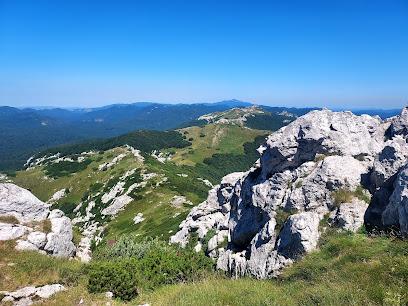
Church of Mary of God of Trsat
Discover the serene beauty and spiritual significance of the Church of Mary of God of Trsat in Rijeka, a must-visit destination for travelers.
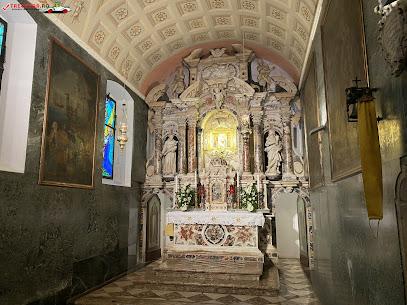
Distillery Aura
Experience the essence of Croatian distillation at Distillery Aura in Buzet, where tradition meets flavor in every sip.
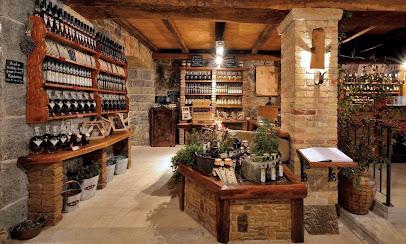
Dvigrad ruins
Explore the majestic Dvigrad ruins in Istria, Croatia, a historical landmark rich in medieval charm and captivating legends.
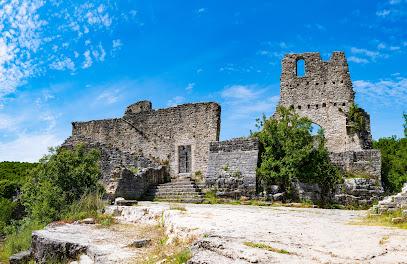
Val Rosandra Nature Reserve
Explore the breathtaking landscapes and rich biodiversity of Val Rosandra Nature Reserve, a must-visit destination for nature enthusiasts in Trieste.
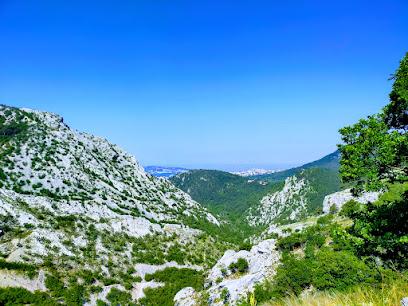
Plaža Medveja
Discover the beauty and tranquility of Plaža Medveja, a stunning beach in Croatia ideal for relaxation and water activities.
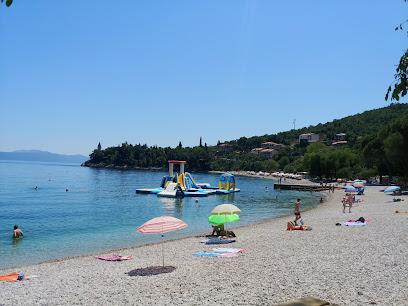
Socerb/San Servolo Castle
Experience the rich history and breathtaking views of Socerb Castle, a hidden gem perched on a cliff in Slovenia, perfect for history enthusiasts and nature lovers alike.
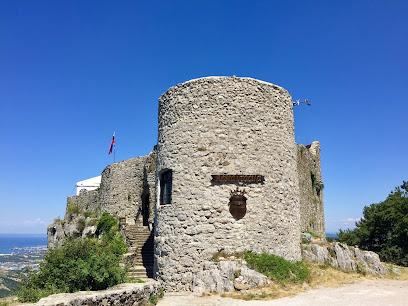
Brseč Beach
Discover Brseč Beach, a serene Croatian retreat with crystal-clear waters and stunning views, perfect for relaxation and exploration.
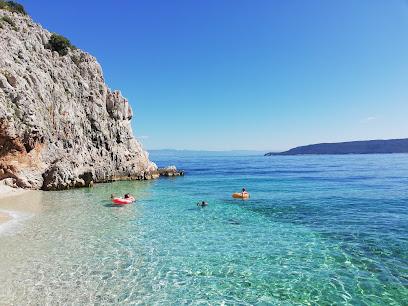
Lipica
Explore the historic Lipica Stud Farm, home to the Lipizzaner horses, art galleries, and beautiful parks in Slovenia's picturesque landscape.

Essential places to dine
Ružmarin
Experience authentic Croatian cuisine at Ružmarin in Opatija - a culinary journey through traditional flavors in a stunning seaside setting.
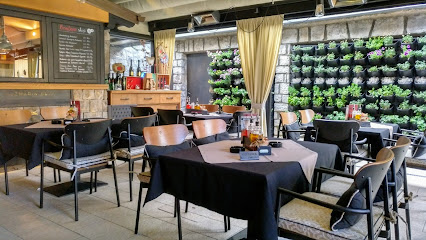
Ostaria Veranda
Experience exquisite Mediterranean cuisine with stunning sea views at Ostaria Veranda in Opatija.
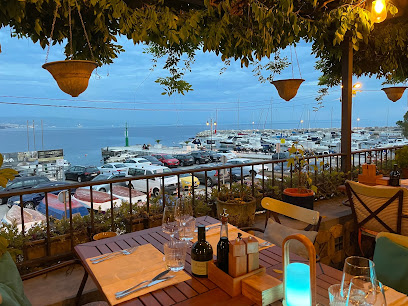
Plavi podrum
Experience exquisite seafood dining at Plavi Podrum in Opatija, where fresh flavors meet breathtaking Adriatic views.
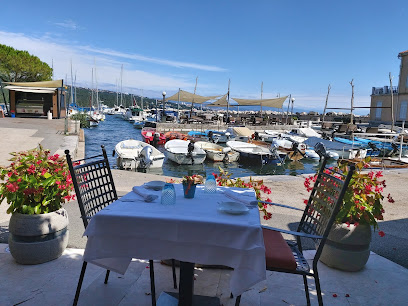
Grill house Opatija
Discover Grill House Opatija - A Culinary Delight Offering Diverse Dishes from Mediterranean Seafood to American Classics.
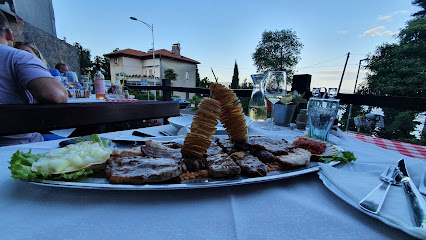
Valle Losca Tavern
Experience authentic Croatian cuisine at Valle Losca Tavern in Opatija - where tradition meets modern culinary excellence.
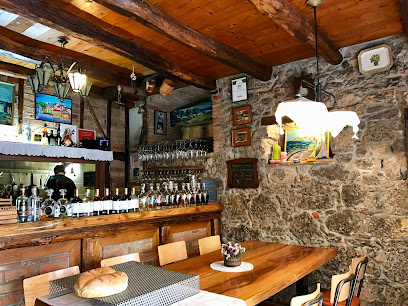
Restoran Istranka
Experience the best of Croatian cuisine at Restoran Istranka in Opatija – where tradition meets taste in a delightful dining atmosphere.
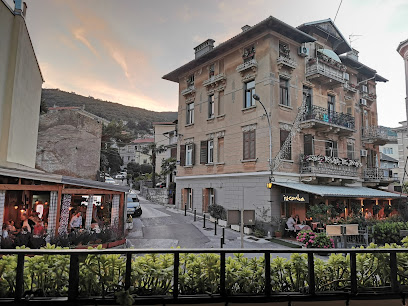
A&D grill restoran
Experience exquisite dining at A&D Grill Restoran in Opatija – where local flavors meet international cuisine for an unforgettable meal.
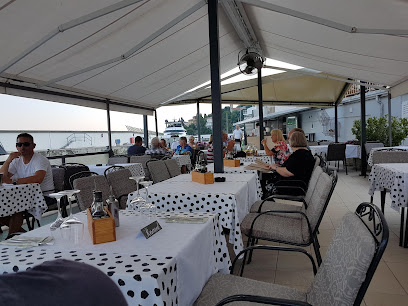
Restaurant Molo
Experience exquisite Croatian cuisine with stunning sea views at Restaurant Molo in Opatija.
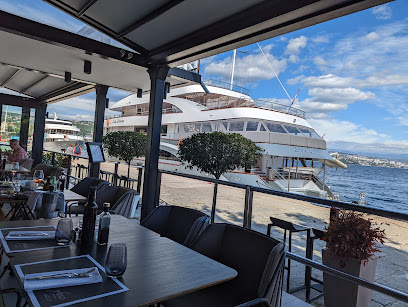
Boutique Restaurant
Experience exquisite dining at Boutique Restaurant in Opatija, where local flavors meet international cuisine in an elegant setting.
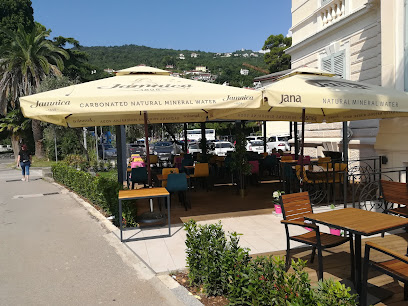
Antiqua Osteria da Ugo
Experience authentic Croatian cuisine at Antiqua Osteria da Ugo in Opatija - where tradition meets taste.
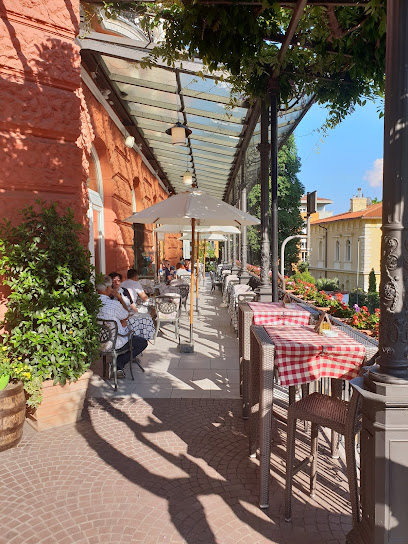
Restoran Evergreen
Experience authentic Croatian cuisine at Restoran Evergreen in Opatija - where local flavors meet stunning coastal views.
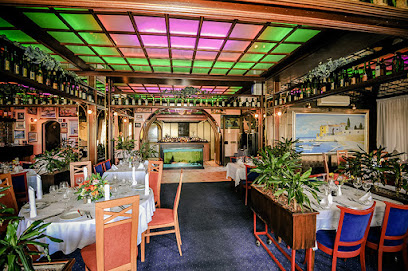
Konoba Elita
Experience authentic Croatian flavors at Konoba Elita in Opatija - where tradition meets taste in a cozy setting.
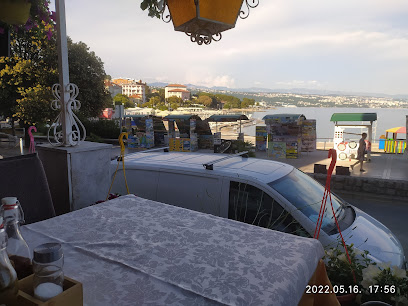
Nami Sushi Restaurant
Experience authentic Japanese flavors at Nami Sushi Restaurant in Opatija - a must-visit for sushi lovers seeking unique culinary delights.
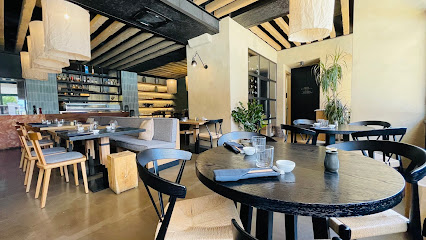
Konoba Tramerka
Discover authentic Croatian flavors at Konoba Tramerka in Opatija - a culinary haven for food enthusiasts.
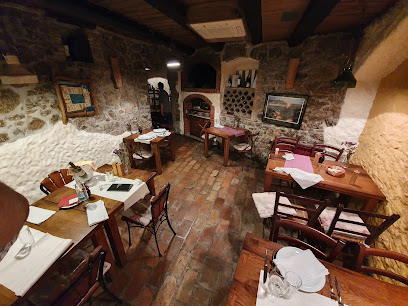
Restoran Argonauti - Hotel Milenij
Experience exquisite Croatian cuisine with stunning sea views at Restoran Argonauti in Opatija's Hotel Milenij.
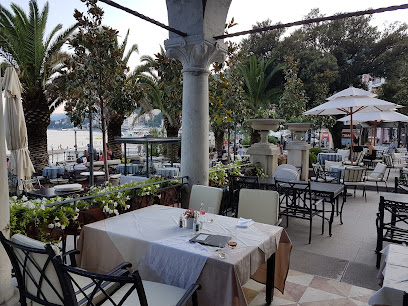
Markets, malls and hidden boutiques
SPAR Supermarket
Discover local flavors and everyday essentials at SPAR Supermarket in the heart of Opatija, Croatia's charming coastal town.
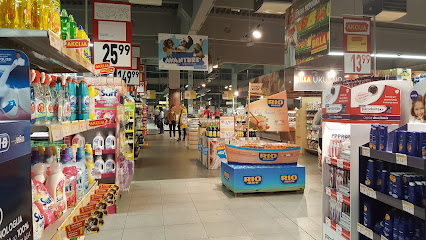
Kaokakao
Discover the culinary magic of Kaokakao Patisserie in Opatija, where each dessert is a masterpiece crafted with love and creativity.
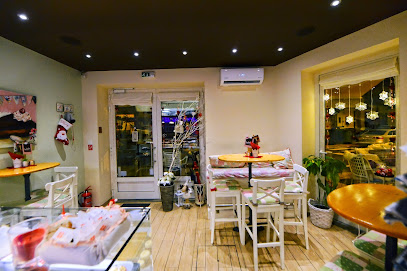
SLATINA Shopping Center
Explore SLATINA Shopping Center in Opatija for a unique shopping experience with diverse stores, dining, and convenient parking.
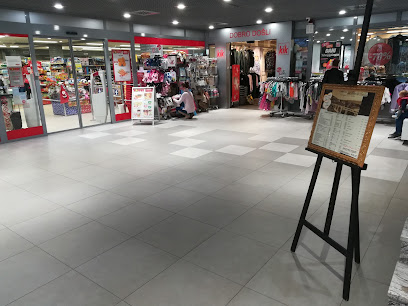
Tommy Maximarket Opatija
Explore Tommy Maximarket Opatija for a delightful shopping experience filled with local flavors and quality products in the heart of Croatia.
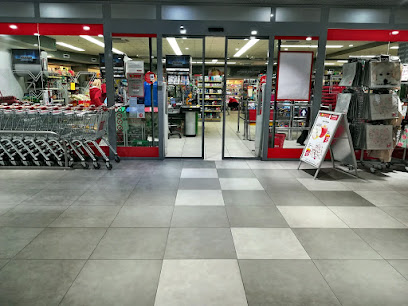
Konzum
Explore Opatija with ease at Konzum, your go-to general store for fresh produce, groceries, and local delicacies.
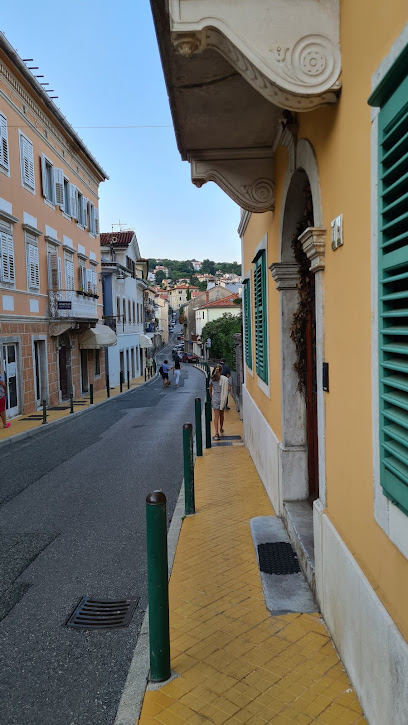
Milenij Choco World
Discover the sweet world of chocolate at Milenij Choco World in Opatija, where exquisite confections and delightful experiences await every chocolate lover.
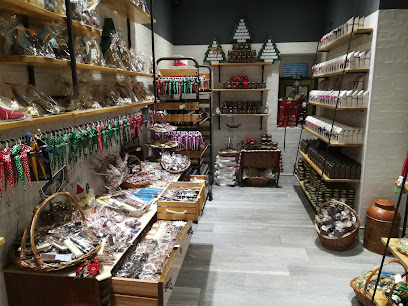
S.K. Elektro d.o.o.
Discover top-quality electronics and lighting solutions at S.K. Elektro d.o.o. in Opatija, where innovation meets exceptional customer service.
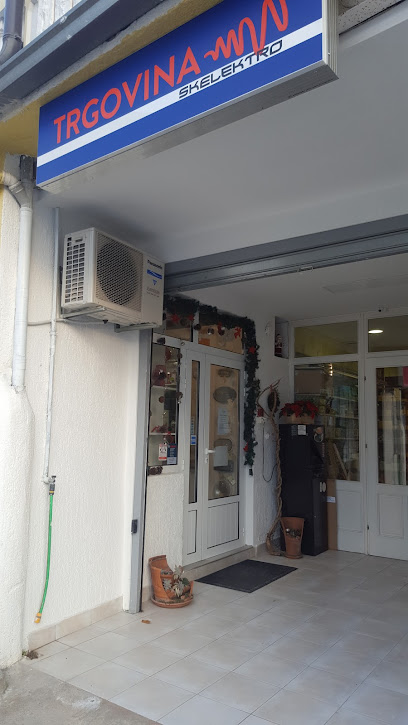
Zlatarna Frederiko
Discover the elegance of Zlatarna Frederiko in Opatija, where exquisite craftsmanship meets timeless design in beautiful jewelry.
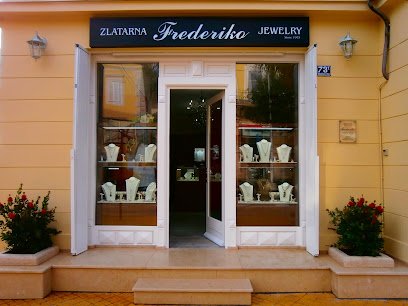
Manufaktura Opatija
Explore the unique local crafts and gourmet delights at Manufaktura Opatija, where Croatian culture comes to life in every corner.
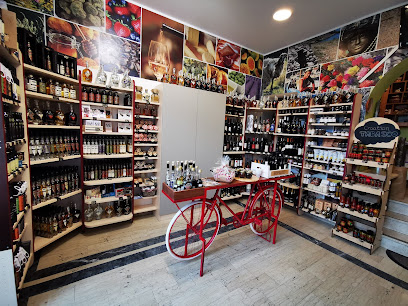
Tramontana Mall Volosko
Explore Tramontana Mall in Opatija for a delightful shopping experience with local charm, fashion, and culinary treats.
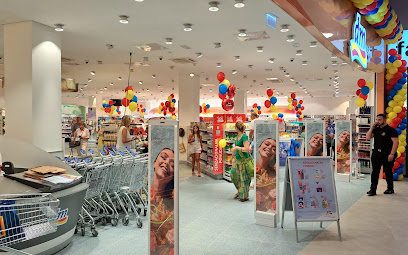
Studenac Market
Explore fresh produce and local delights at Studenac Market in Opatija, a grocery store that showcases the essence of Croatian culture.
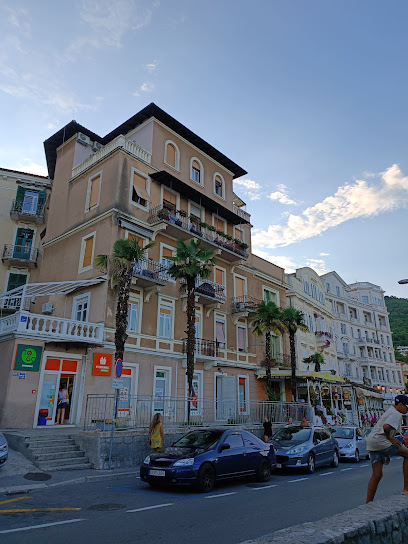
Kredenca Opatija
Explore the exquisite selection of souvenirs and gourmet delights at Kredenca Opatija, your go-to gift shop in the heart of Croatia's coastal gem.
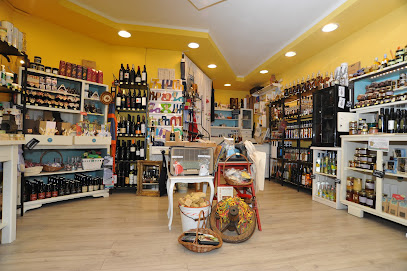
ORION PYROSHOP - BRINOX
Explore ORION PYROSHOP - BRINOX in Opatija for unique souvenirs and quality products that capture the essence of Croatian culture.
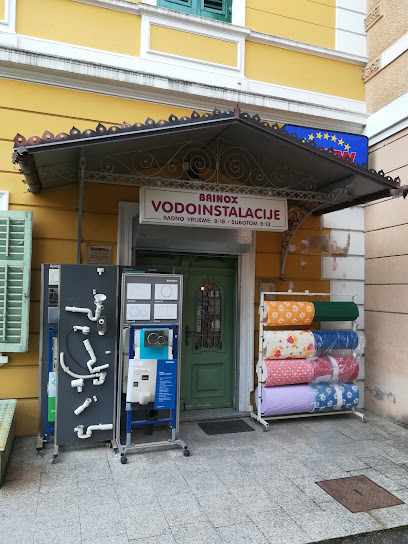
Tannin Fine Wine, Olive Oil & Food Shop
Explore the rich flavors of Croatia at Tannin Fine Wine, Olive Oil & Food Shop, your destination for exquisite wines and gourmet delights in Opatija.
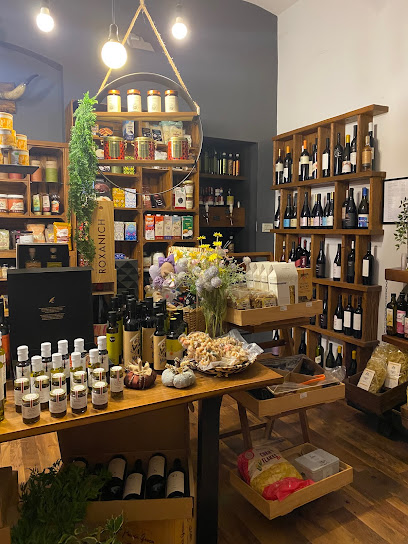
KiK Opatija
Explore trendy and affordable fashion at KiK Opatija, a premier clothing store in the charming coastal town of Opatija, Croatia.
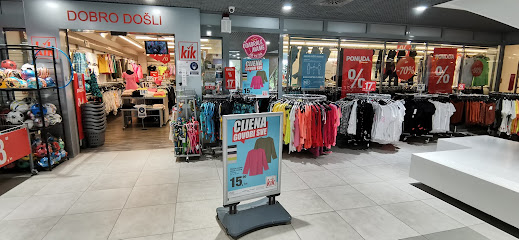
Essential bars & hidden hideouts
Colosseum Lounge & Beach Bar
Discover the ultimate beachside relaxation at Colosseum Lounge & Beach Bar, where stunning views and delicious drinks await you in Opatija.
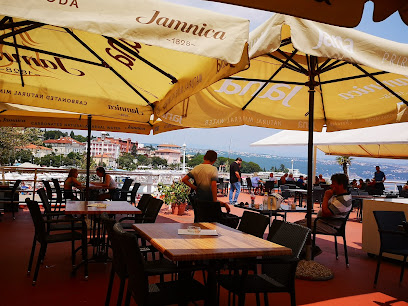
Cafe Monokini
Discover Cafe Monokini in Opatija, where stunning sea views and delightful drinks create the perfect coastal retreat.
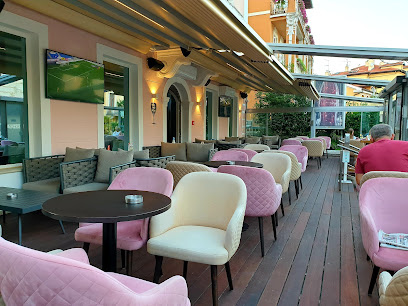
Angiolina Bar
Discover Angiolina Bar in Opatija: A stylish bar with exquisite cocktails and stunning sea views, perfect for a memorable night out.
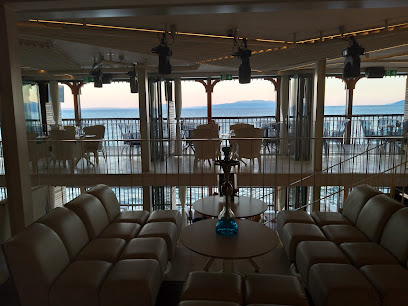
Hemingway Bar Opatija
Discover the sophisticated charm of Hemingway Bar Opatija, where exquisite cocktails meet breathtaking views of the Adriatic coast.
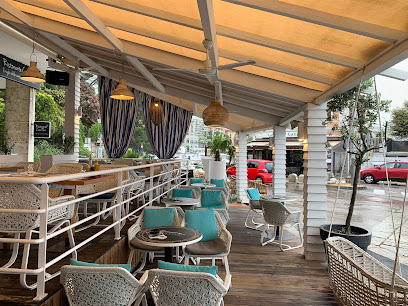
Kon-Tiki Bar
Discover the lively atmosphere and stunning sea views at Kon-Tiki Bar, a perfect spot for cocktails in Opatija, Croatia.
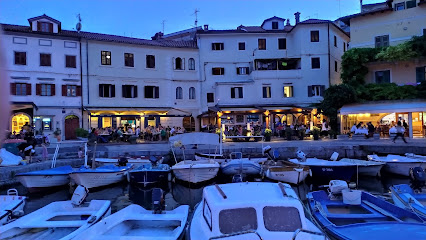
Caffe bar Eugenian
Discover the charm of Caffe bar Eugenian in Opatija, where exquisite drinks and a vibrant atmosphere await every visitor.
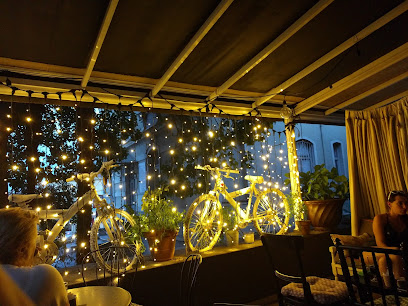
Caffe bar “Cocktail Bar Mare”
Experience the vibrant nightlife of Opatija at Cocktail Bar Mare, where exquisite cocktails and stunning sea views create unforgettable moments.
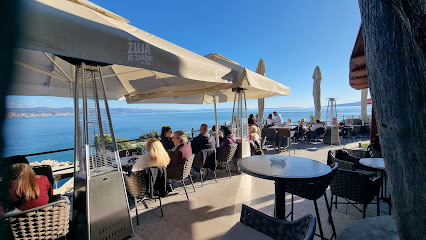
Caffe Bar Victorious
Discover the vibrant atmosphere of Caffe Bar Victorious in Opatija, where local flavors and stunning views create the perfect relaxation spot.
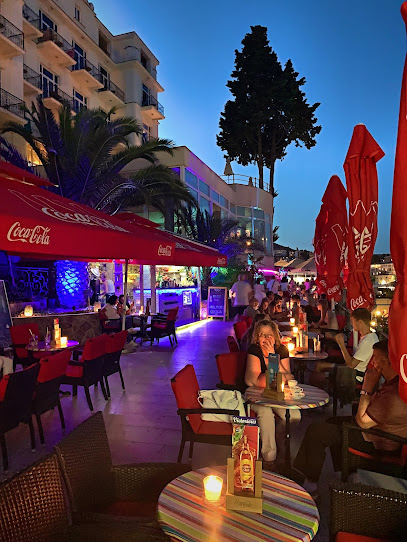
Bella Vista
Discover the charm of Bella Vista, a vibrant bar in Opatija offering stunning sea views and a delightful taste of local culture.
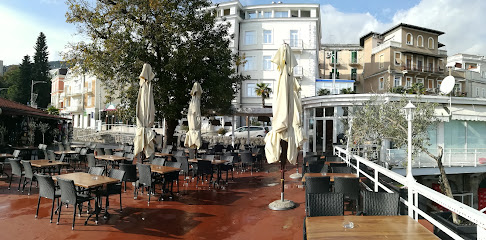
Cafe Palme
Experience the charm of Cafe Palme in Opatija, offering delightful breakfasts, exquisite cakes, and a vibrant atmosphere for every occasion.
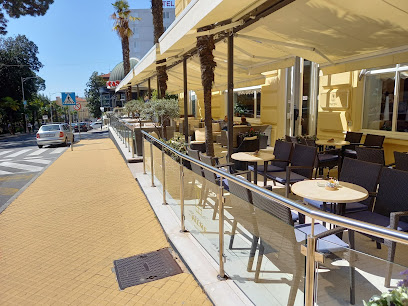
Beach Bar - Hotel Domino
Discover the perfect beachside escape at Beach Bar - Hotel Domino in Opatija, where cocktails meet stunning sea views.
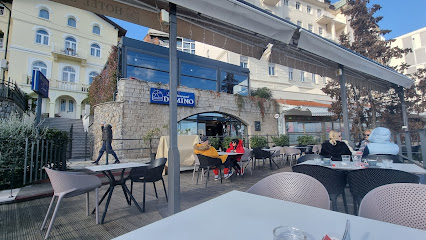
Lido Restaurant & Bar
Experience the charm of Opatija at Lido Restaurant & Bar, where delicious cuisine meets breathtaking Adriatic views.
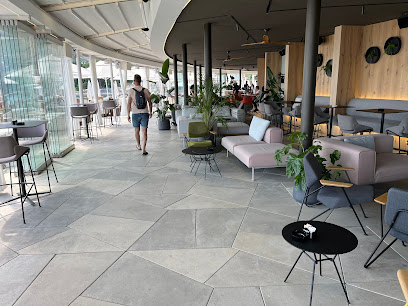
Kavana Kaiser Opatija
Discover the charm of Kavana Kaiser Opatija, where stunning views meet a vibrant atmosphere—perfect for relaxing with a drink by the Adriatic.
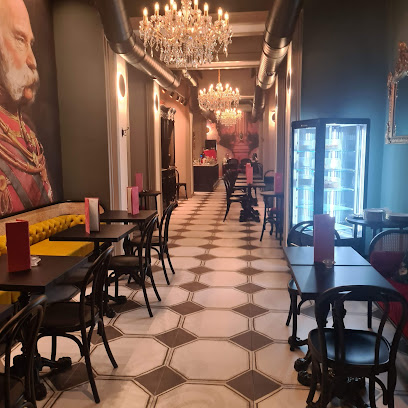
Beach Bar Magma
Discover the perfect blend of relaxation and scenic beauty at Beach Bar Magma in Opatija, where the Adriatic Sea meets vibrant beach life.
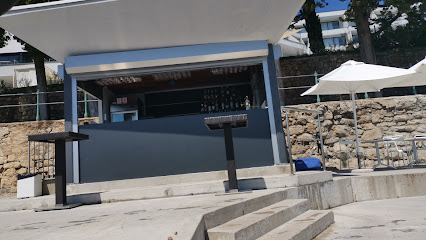
Lido Sunset Beach
Discover the enchanting Lido Sunset Beach in Opatija, where sun, sea, and delicious cuisine come together for an unforgettable experience.
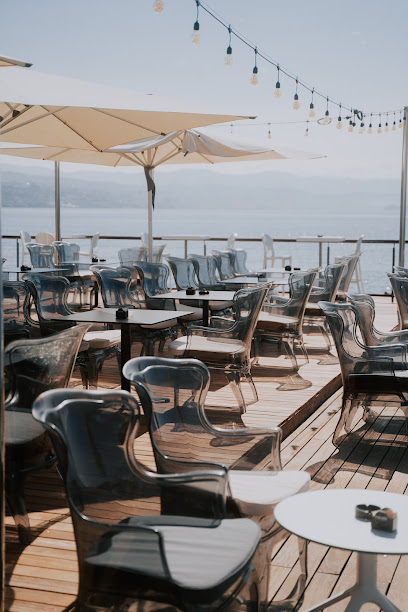
Travel experiences inspired by this city
Explore more travel diariesLocal Phrases
-
- HelloBok
[Bohk] - GoodbyeDoviđenja
[Dov-ee-jen-ya] - YesDa
[Dah] - NoNe
[Neh] - Please/You're welcomeMolim
[Moh-leem] - Thank youHvala
[Hvah-lah] - Excuse me/SorryOprostite
[O-pro-stee-teh] - How are you?Kako ste?
[Kah-koh steh?] - Fine. And you?Dobro. A vi?
[Doh-bro. Ah vee?] - Do you speak English?Govorite li engleski?
[Goh-voh-ree-teh lee eng-les-kee?] - I don't understandNe razumijem
[Neh rah-zoo-mee-yem]
- HelloBok
-
- I'd like to see the menu, pleaseMolio bih jelovnik, molim
[Moh-lee-oh bee yeh-lohv-neek, moh-leem] - I don't eat meatNe jedem meso
[Neh yeh-dem meh-so] - Cheers!Živjeli!
[Zhee-vyeh-lee] - I would like to pay, pleaseŽelim platiti, molim
[Zheh-leem plah-tee-tee, moh-leem]
- I'd like to see the menu, pleaseMolio bih jelovnik, molim
-
- Help!Pomoć!
[Poh-mohch!] - Go away!Idi odavde!
[Ee-dee oh-dahv-deh!] - Call the Police!Pozovite policiju!
[Poh-zoh-vee-teh poh-lee-tsee-yoo!] - Call a doctor!Pozovite doktora!
[Poh-zoh-vee-teh dohk-toh-rah!] - I'm lostIzgubio/la sam se
[Eez-goo-byoh/lah sahm seh] - I'm illBolestan/sna sam
[Boh-leh-stahn/snah sahm]
- Help!Pomoć!
-
- I'd like to buy...Želim kupiti...
[Zheh-leem koo-pee-tee...] - I'm just lookingSamo gledam
[Sah-moh gleh-dahm] - How much is it?Koliko košta?
[Koh-lee-koh kosh-tah?] - That's too expensiveTo je previše skupo
[Toh yeh preh-vee-sheh skoo-poh] - Can you lower the price?Možete li spustiti cijenu?
[Moh-zheh-teh lee spoo-stee-tee tsee-yeh-noo?]
- I'd like to buy...Želim kupiti...
-
- What time is it?Koliko je sati?
[Koh-lee-koh yeh sah-tee?] - It's one o'clockJedan sat je
[Yeh-dahn saht yeh] - Half past (10)Pola (deset)
[Poh-lah (deh-set)] - MorningJutro
[Yoo-troh] - AfternoonPopodne
[Poh-pohd-neh] - EveningVečer
[Veh-chehr] - YesterdayJučer
[Yoo-cher] - TodayDanas
[Dah-nahs] - TomorrowSutra
[Soo-trah] - 1Jedan
[Yeh-dahn] - 2Dva
[Dvah] - 3Tri
[Tree] - 4Četiri
[Cheh-tee-ree] - 5Pet
[Peh-t] - 6Šest
[Shehst] - 7Sedam
[Seh-dahm] - 8Osam
[O-sahm] - 9Devet
[Deh-veht] - 10Deset
[Deh-set]
- What time is it?Koliko je sati?
-
- Where's a/the...?Gdje je...?
[Gdyeh yeh...?] - What's the address?Koja je adresa?
[Koh-yah yeh ah-deh-sah?] - Can you show me (on the map)?Možete li mi pokazati (na karti)?
[Moh-zheh-teh lee mee poh-kah-zah-tee (nah kahr-tee)?] - When's the next (bus)?Kada je sljedeći (autobus)?
[Kah-dah yeh sl-yeh-deh-chee (ow-toh-boos)?] - A ticket (to ....)Jednu kartu (za ....)
[Yeh-dnoo kahr-too (zah ....)]
- Where's a/the...?Gdje je...?
History of Opatija
-
Opatija, located on the Adriatic coast, has a rich history dating back to prehistoric times. Archaeological findings suggest that the area was inhabited by the Illyrians and later by the Romans. The name 'Opatija' is derived from the word 'abbey,' referencing the Benedictine abbey of St. James, which was established in the town during the 14th century.
-
Opatija's transformation into a fashionable resort town began in the mid-19th century during the Austro-Hungarian Empire. In 1844, Iginio Scarpa, a wealthy merchant from Rijeka, built the Villa Angiolina, sparking interest in the area among the European aristocracy. The town quickly developed with the construction of hotels, villas, and promenades, becoming known as the 'Nice of the Adriatic.'
-
The completion of the railway line between Opatija and Vienna in 1873 was a significant milestone. This development made the town more accessible to visitors from the Austro-Hungarian Empire and beyond, solidifying its status as a premier tourist destination. Luxury hotels such as the Hotel Kvarner, built in 1884, further boosted its appeal.
-
The late 19th and early 20th centuries, known as the Belle Époque, were a golden age for Opatija. The town flourished with elegant architecture, lush parks, and cultural events. Prominent figures, including Austrian Emperor Franz Joseph I and composer Gustav Mahler, were among the notable visitors who enjoyed Opatija's charm and tranquility.
-
World War I brought significant changes to Opatija. The dissolution of the Austro-Hungarian Empire led to the town becoming part of Italy in 1919 under the Treaty of Saint-Germain. This period saw a decline in tourism, as political instability and economic challenges affected the region.
-
During World War II, Opatija was occupied by German forces and later liberated by the Yugoslav Partisans. After the war, Opatija became part of Yugoslavia. The post-war period saw efforts to revive the town's tourism industry, with state-sponsored initiatives promoting it as a health resort and tourist destination.
-
Since Croatia's independence in 1991, Opatija has continued to develop as a major tourist destination. The town has preserved its historical charm while modernizing its infrastructure. Today, Opatija is renowned for its cultural events, wellness centers, and beautiful coastal scenery, attracting visitors from around the world.
Opatija Essentials
-
Opatija is located in the western part of Croatia, along the Adriatic coast. The nearest international airport is Rijeka Airport, approximately 40 kilometers away. From Rijeka, you can take a taxi, bus, or a rental car to Opatija. Alternatively, you can fly into Zagreb Airport, which is around 180 kilometers away, and then take a bus or train to Rijeka, followed by a short taxi or bus ride to Opatija. Buses run frequently from major Croatian cities such as Zagreb, Split, and Dubrovnik, making it accessible by road as well.
-
Opatija is a compact city, and many of its attractions are within walking distance. Local buses are available for trips within the city and to nearby areas like Rijeka. Taxis are also readily available and can be hailed on the street or booked via phone. For those looking to explore the region at their own pace, renting a car is a convenient option. Bicycles are available for rent, providing a scenic way to explore the coastal paths.
-
The official currency in Croatia is the Croatian Kuna (HRK). Credit and debit cards are widely accepted in hotels, restaurants, and shops, but it is advisable to carry some cash for smaller establishments and market purchases. ATMs are plentiful throughout Opatija, and most banks offer currency exchange services. It is also possible to exchange money at exchange offices and some hotels.
-
Opatija is generally a safe destination for tourists. As with any travel destination, it is advisable to take standard precautions. Avoid walking alone at night in unfamiliar areas and keep an eye on your belongings in crowded places. There are no specific high-crime areas targeting tourists in Opatija, but remaining vigilant and aware of your surroundings is always recommended.
-
In case of emergency, dial 112 for immediate assistance. This number connects you to emergency services including police, medical, and fire services. The nearest hospital is located in Rijeka, but Opatija has medical facilities and pharmacies for minor health issues. It is advisable to have travel insurance that covers medical emergencies. For non-emergency medical help, you can visit local clinics or pharmacies.
-
Fashion: Do dress comfortably and stylishly, but avoid overly casual attire in upscale restaurants and hotels. Religion: Do respect local customs and traditions. When visiting churches, dress modestly and be respectful of ongoing services. Public Transport: Do validate your bus ticket upon boarding. Don't eat or drink on public transport. Greetings: Do greet people with a friendly 'Dobar dan' (Good day) or a handshake. Eating & Drinking: Do try local delicacies and accept food offerings graciously. Don't refuse hospitality, as it is considered impolite.
-
To experience Opatija like a local, take a stroll along the Lungomare, a scenic coastal promenade that stretches for 12 kilometers. Visit the local markets where you can buy fresh seafood and produce. Engage with locals, who are often friendly and eager to share stories about the town's history and culture. Don't miss the chance to enjoy a coffee at a local cafe, a favorite pastime of the locals.
Trending Landmark in Opatija
-
Lungomare Guided Tour Opatija
-
Maiden with the Seagull
-
Villa Angiolina u Opatiji Museum
-
Volosko Beach
-
Angiolina Bar
-
American Gardens
-
Slatina beach
-
Croatian Museum of Tourism
-
Church of St. Jacob
-
Church of the Annunciation of the Blessed Virgin Mary
-
The Wall of Fame
-
TIC Opatija
-
Madonna del Mare Statue
-
Mornar
-
Galerija antikvarijat GAL
Nearby Cities to Opatija
-
Things To Do in Postojna
-
Things To Do in Koper
-
Things To Do in Sežana
-
Things To Do in Trieste
-
Things To Do in Izola
-
Things To Do in Portorož
-
Things To Do in Rovinj
-
Things To Do in Piran
-
Things To Do in Pula
-
Things To Do in Ljubljana
-
Things To Do in Nova Gorica
-
Things To Do in Škofja Loka
-
Things To Do in Kamnik
-
Things To Do in Bohinj
-
Things To Do in Bled















